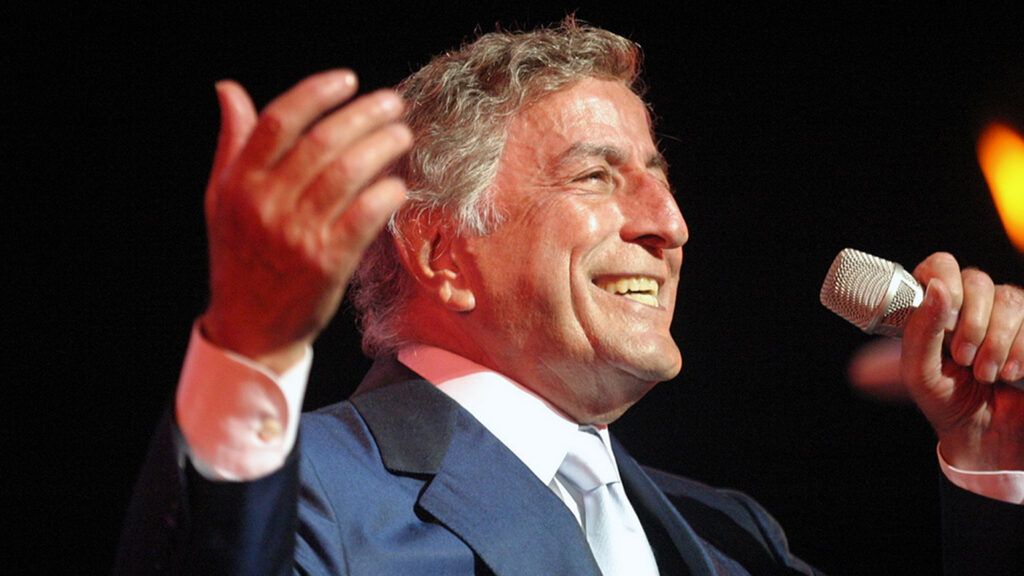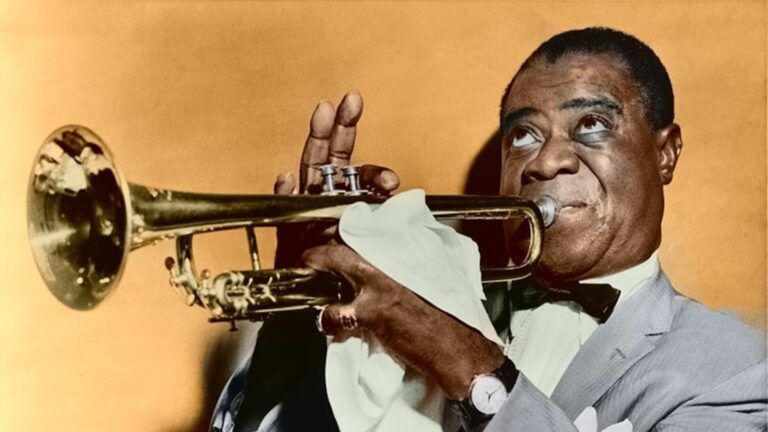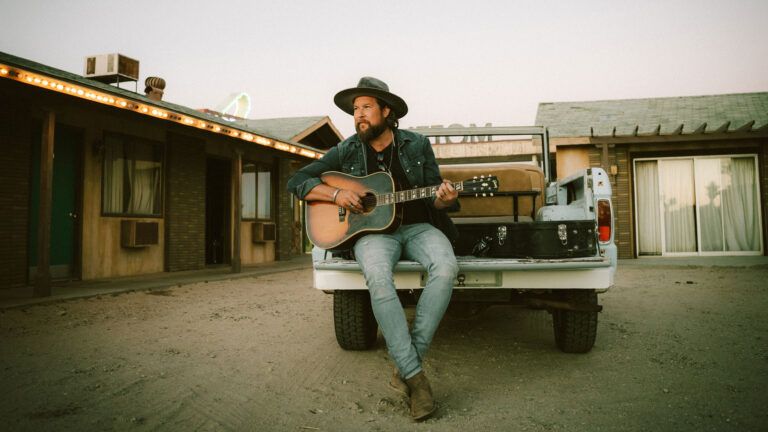There’s an old saying that if you do what you love, you’ll never work a day in your life. Tony Bennett, who celebrated his 95th birthday on August 3, 2021, did the things he loves—singing and painting—for more than 80 years, even as he dealt with Alzheimer’s disease. He performed his final concerts in September 2021.
Bennett was born Anthony Dominick Benedetto—”blessed one” in Italian—on August 3, 1926, in Queens, New York. His father was a grocer, his mother a seamstress and both of their families emigrated to the United States from the Calabria region of Italy around the turn of the last century.
His father died when Bennett was just 10 years old. His family struggled financially, but like many kids of the Depression, he was enthralled by the singers he heard on the radio, from Al Jolson to Eddie Cantor and Bing Crosby as well as many of the prominent jazz artists of the day such as Louis Armstrong and Joe Venuti.
Bennett, whose uncle Dick was a tap dancer in vaudeville, was already singing by age 10; he performed at the opening of NYC’s Triborough Bridge, standing right next to Mayor Fiorello La Guardia (and received a pat on the head from His Honor for his trouble).
By 13, Bennett was helping to support his family by working as a singing waiter at various Italian restaurants, and by 16, he had left school in order to further assist in supporting his family. Having already exhibited a skill for drawing, he expected to pursue a career as a commercial artist, but singing won out.
After basic training at Fort Dix and Fort Robinson, Bennett served with the 255th Infantry Regiment of the 63rd Infantry Division during World War II. After participating in the liberation of a Nazi concentration camp near Landsberg as the war drew to a close, Bennett was reassigned to a Special Services band unit that entertained American forces in occupied Germany, singing under the stage name Joe Bari with the 314th Army Special Services Band.
Upon his return to the States in 1946, Bennett studied at the American Theatre Wing for a time while performing around NYC and making a few records that made no splash. In 1949, Pearl Bailey asked Bennett to open for her at a show in NYC’s Greenwich Village. Bob Hope was in the audience for that performance and, impressed by Bennett’s talent, he asked Bennett to come out on the road with him (it was on that tour that Benedetto was shortened to Bennett). A year later, Mitch Miller signed Bennett to a contract with Columbia Records.
Bennett’s first big hit, Because of You, sold more than a million copies and topped the charts in 1951. His next big hit, later that same year, was a decidedly non-country version of Hank Williams’ Cold, Cold Heart. Soon, Bennett was singing for throngs of bobby-soxers, performing seven shows a day at NYC’s renowned Paramount Theater.
Bennett’s early recordings were strictly pop, but by the late ’50s, his records were showing a jazz influence, as he worked with greats such as Art Blakey, Chico Hamilton and the Count Basie Orchestra. In 1962, Bennett released the record that would become his signature song, I Left My Heart in San Francisco, a tune that had been written nine years earlier for Claramae Turner, an operatic contralto who performed it regularly but had never recorded it. With his recording of the song, Bennett made it his own.
With the rise of rock ‘n’ roll and, especially, the ascent of the Beatles and other bands from England, Bennett found it harder for his records to chart, and at the urging of his management and record label executives, he made a few unsuccessful attempts to cover the hits of the day. He never felt comfortable with that approach.
The struggles his family had experienced during the Depression had given Bennett a heightened empathy for those who are less fortunate or are being treated unfairly. As such, he was a strong supporter in the 1960s of the civil rights movement, and in 1965, he participated in the Selma to Montgomery marches.
By the end of the ’70s, Bennett’s life and career were in disarray. A record label he had founded went under, he was addicted to drugs and the Internal Revenue Service was threatening to take possession of his home in Los Angeles. He turned in desperation to his son Danny, an aspiring musician himself who was struggling with music but had exhibited a good head for business. Danny told his dad to focus on the music and let him handle the business end, and it was an arrangement that proved beneficial to both men.
As for his addiction, he started on the road to recovery when a friend told him he had “sinned against his talent.” In a 2011 interview for ABC-TV’s 20/20, Bennett told Chris Cumo, “That one sentence just changed my life. It meant that I had to drop everything I was doing. I stopped all drugs completely.”
Danny felt confident that young people would take to his father’s music if exposed to it, so Bennett moved back to NYC and began to book shows in small theatres and on college campuses. He re-signed with Columbia Records, began to appear with some frequency on Late Night with David Letterman and, later, shows such as Late Night with Conan O’Brien and The Simpsons. He appeared at the MTV Video Music Awards, alongside popular rock and hip-hop artists of the day. His record sales took off like a rocket; Danny’s decision to market Bennett to young people without changing his music or his image had paid off handsomely.
Bennett remains active in a number of charitable causes. He and his wife, Susan, founded Exploring the Arts, a charitable organization that promotes and supports arts education. They also founded a public high school in Queens that is focused on the performing arts, naming it after Bennett’s old friend, Frank Sinatra, who once said of Bennett, “For my money, Tony Bennett is the best singer in the business.”
Through it all, Bennett has continued to tour, record and, yes, even paint. He devotes time every day to sketching and painting, and his acclaimed works are found in prominent collections around the world, including the Smithsonian American Art Museum in Washington, D.C., the United Nations and NYC’s National Arts Club. His work has also been featured in ARTnews and other arts publications and collected in a pair of art books of his own, Tony Bennett: What My Heart Has Seen and Tony Bennett in the Studio: A Life of Art & Music. He was even the official artist for the 2001 Kentucky Derby.
Bennett has also published several memoirs, among them Life Is a Gift, Just Getting Started and The Good Life: The Autobiography Of Tony Bennett.
It’s remarkable to think that a man of Bennett’s talents and energy was once in despair, looking up from rock bottom. That he bounced back and performed until the age of 95 is enough to inspire all of us and it brings to mind three nuggets of wisdom from Dr. Norman Vincent Peale, the founder of Guideposts: “Live your life and forget your age,” “It’s always too early to quit,” and “Sing at least one song a day.”
For more inspiring stories, subscribe to Guideposts magazine.






